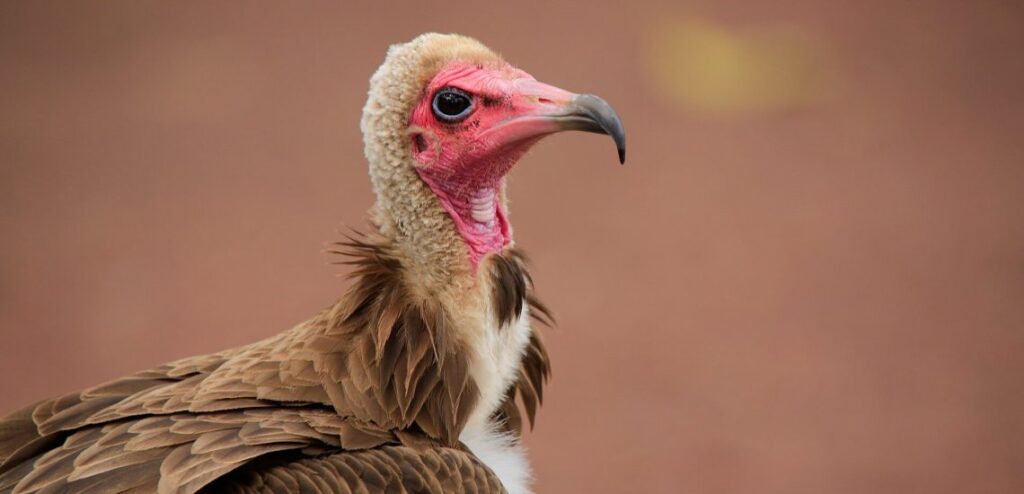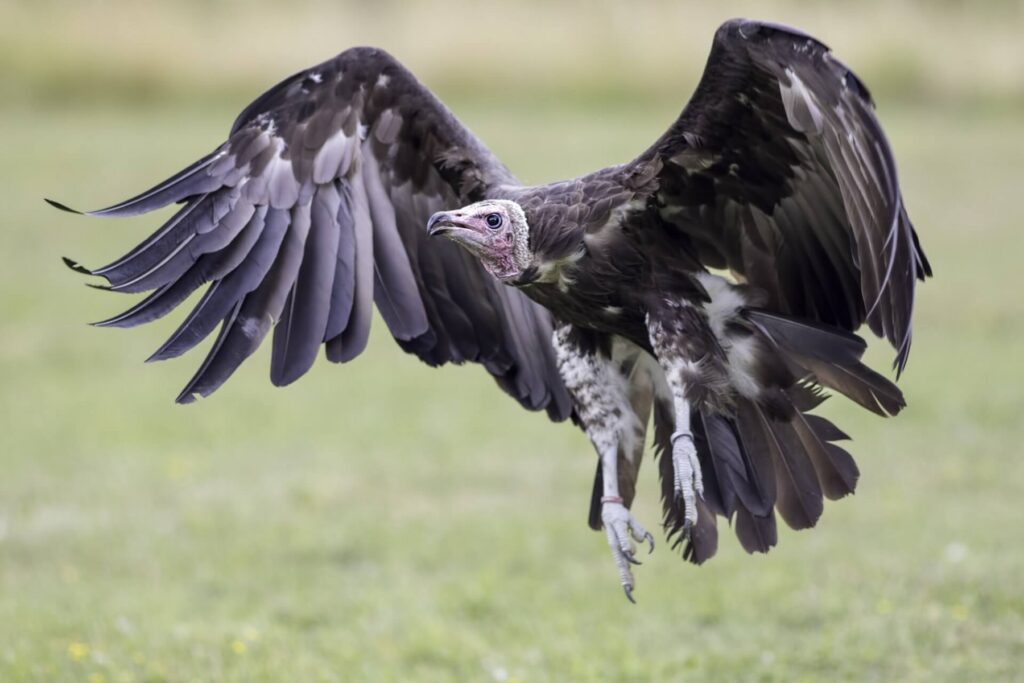Investigating the mystery behind Guinea-Bissau’s mass vulture deaths

Earlier this year, the shocking, and unexplained, discovery of numerous clusters of dead vultures across Guinea-Bissau rocked the conservation world. However, investigations are shedding light on the crime behind the deaths, and ensuring a safer future for these Critically Endangered birds in the country
By Lewis Kihumba
Guinea Bissau has lost more than 2000 Critically Endangered vultures in deliberate poisoning, in the world’s largest incident of vulture deaths to date. We call on the Guinea Bissau government, CEDEAO and African Union to take ACTION and #StopTheKillings
Sign our petition here
In late February, a local worker in a rice field on the outskirts of Bafatá, Guinea-Bissau, discovered a group of around 200 recently-deceased vultures. This shocking scene was the first of many to emerge across the West African nation over the next few days. Soon, more incidents of mass vulture deaths were reported, both on the mainland and in the country’s Bijagós archipelago, increasing the death toll to more than 1,600 vultures. While February was the epicentre of these unexplained deaths, various reports indicate these incidents may have begun as early as the end of 2019, and continue on to this day, with 145 more vulture deaths being recorded in the Bafatá Sector of the country between the 4th and 24th of March. This suggests that the true death toll could be much higher, leaving conservationists in a race against time to solve the mystery.
Almost all the casualties were Hooded Vultures Necrosyrtes monachus (Critically Endangered), one of the six African vulture species driven to the brink of extinction in recent times, with some species’ populations declining by up to 97%. Despite its comparatively compact size, Guinea-Bissau is home to the largest regional populations of Hooded Vulture, and according to recent research, may hold around 22% of the global population. It also holds important populations of White-backed Vulture Gyps africanus, another Critically Endangered species.
Poisoning is the biggest threat to African vultures, and is suspected to be the most likely cause of the spate of deaths in Guinea-Bissau, with local reports indicating some dying birds were “bubbling from the beak” and searching for water. Since there is no big game in the country, it is unlikely to be related to intentional vulture poisoning incidents found elsewhere on the continent, where poachers lace carcasses with poison to prevent circling vultures from alerting rangers to their activities.
Instead, evidence increasingly indicates that the poisoning is being driven by demand for vulture body parts for belief-based use, a practice prevalent in West Africa. Many of the dead vultures were beheaded, suggesting the body parts were harvested for ‘medicinal’ or ritual purposes, despite the lack of evidence that they provide any such medical benefits. “Vulture body parts, along with other animal products, are well known to be illegally traded internationally for belief-based use, particularly in West Africa”, says Rebecca Garbett, BirdLife’s Vulture Conservation Manager. “Information coming from field teams in Guinea-Bissau suggests the vultures being killed in this incident may be illegally traded widely throughout the region for belief-based use, although this is illegal and drives declines internationally.”

Following the discovery of this mass killing, local authorities immediately swung into action, with the governor of the Bafatá region forming a task force to locate and incinerate all vulture carcasses to avoid potential contamination to humans and other wildlife. The task force comprised of members of the local administration, health officials, tertiary officials and security officials drawn from the National Guard, armed forces and police, working with a network of local civil society organisations, including ODZH (Organisation for the Defence and Development of Wetlands in Guinea-Bissau).
BirdLife International, in collaboration with ODZH and others, is playing a key role in implementing an action plan to investigate the causes and prevent similar incidents in the future. A key step in this plan is to collect samples for laboratory analyses, and the detailed circumstances of vulture mortalities in regions where the most deaths were reported, namely Bafatá, Gabu and Bambadinca. Accordingly, samples were collected and sent to the University of Lisbon where preliminary results reported by the Vulture Consevation Foundation (VCF) found highly toxic carbamate pesticides. These are the most frequently used highly hazardous agricultural pesticides used illegally to poison wildlife in Africa.
As part of this undertaking, the field team have been conducting interviews with stakeholders including cattle breeders, health and veterinary officials, slaughterhouse workers, individuals involved in burning the vulture carcasses, traditional medicine practitioners and local authorities among others.
A technical committee, comprised of ODZH and various governmental partners, has been set up to provide support for implementation of this plan. Other partners include the Convention on International Trade in Endangered Species (CITES), Convention on Migratory Species (CMS), VCF and the IUCN Vulture Specialist Group. Guinea-Bissau is also part of the Multi-species Action Plan to conserve African-Eurasian vultures, adopted in 2017 by the CMS. This Action Plan proposes many steps that are directly applicable to this tragedy, such as rolling out all possible policies and legal measures to reduce the belief-based use of vulture body parts. Furthermore, CITES stipulates that any international trade must be authorized by an export permit, which should only be granted if trade will not be detrimental to the survival of the species in the wild.
“The mass poisoning of vultures in Guinea-Bissau is sad and unfortunate. While there are concerted efforts to save these Critically Endangered birds, tragedies such as this undermine conservation efforts”, says Geoffroy Citegetse, a Conservation Project Manager based at BirdLife’s West Africa office. “In spite of this, we are working together to understand the cause of the deaths and raise awareness about the plight of vultures in Guinea Bissau.” Recent political instability in Guinea Bissau and the COVID-19 pandemic have made tackling this crisis particularly challenging. However, through the action that has already been taken, it is hoped that we can get to the root of the causes quickly, so we can prevent any further incidents.
Together we can #StopTheKillings: Sign our petition here
BirdLife’s support for the response to the vulture poisoning and collaboration with other organisations was made possible through its membership of the Restore Species partnership, which works to prevent extinctions caused by illegal and unsustainable trade and hunting, and poisoning.